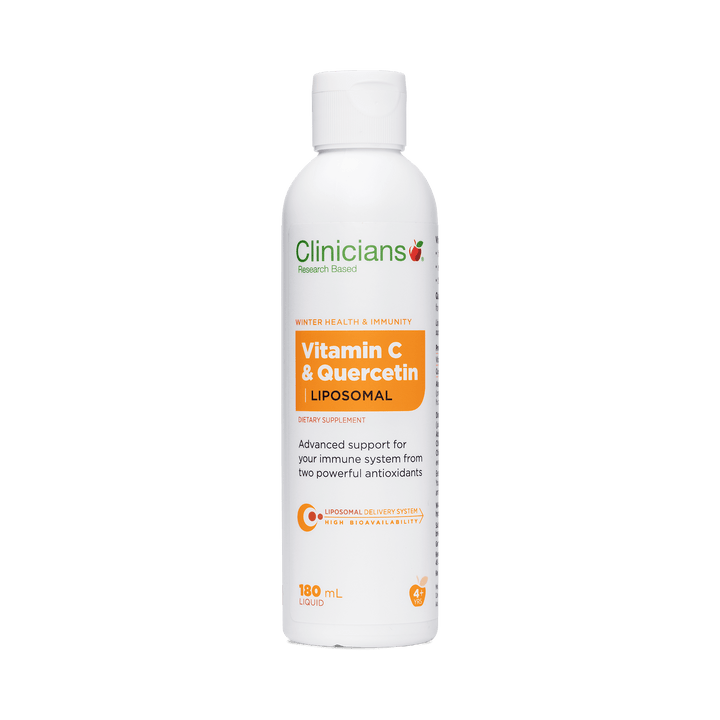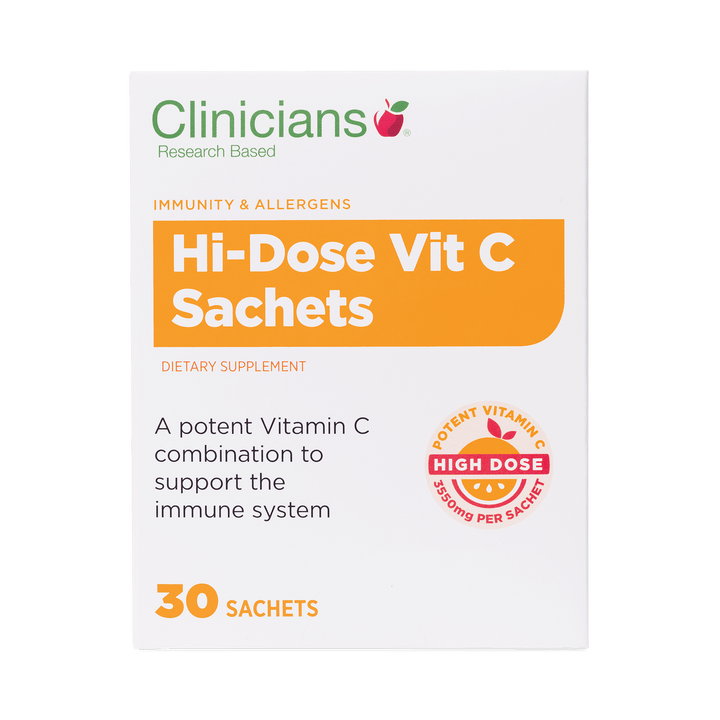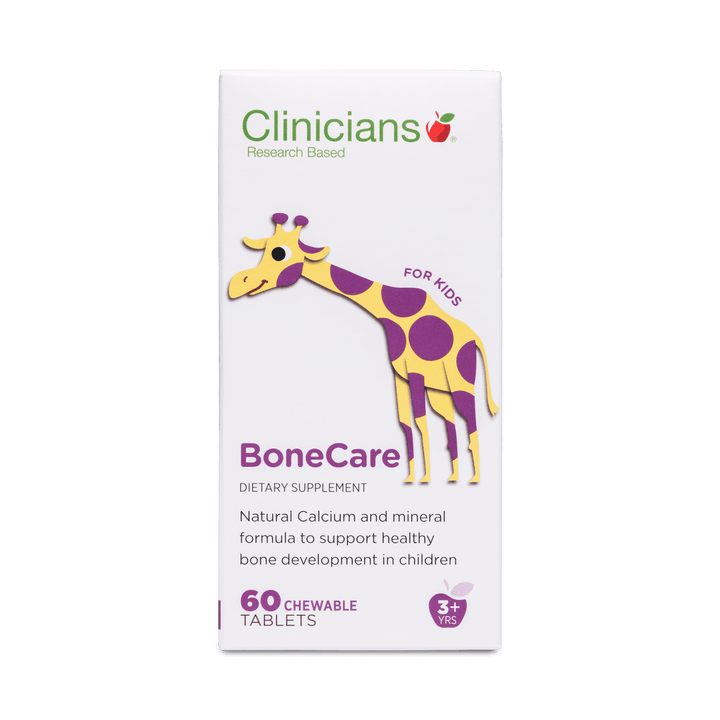Vitamin C is known for its immune benefits, but did you know it is also used in most cells in the body? Find out how it influences our mood, stress and skin.
What is Vitamin C?
Vitamin C is an essential nutrient but we can't make it in the body. So, it needs to come from our diet.
Scientists believe we used to be able to make Vitamin C, but somehow lost the ability through evolution. We're not the only ones though. We're also in the company of some monkeys, apes and guinea pigs! (Most other animals are still able to make Vitamin C from simple sugars, derived from plant sources. Humans just aren't one of the lucky ones.)
Vitamin C is also a water-soluble nutrient, so we can't store it and any we don't use is lost through urine. That means we need to eat Vitamin C rich foods regularly in order to maintain good health. If you don't have enough in your diet, a Vitamin C deficiency can cause a health condition called scurvy.
Scurvy was first noticed in sailors and was a leading cause of death on long voyages. It was Scottish naval surgeon, James Lind who made the connection between the disease and a nutritional deficiency. Eating citrus fruit was found to be the quickest way to cure the condition and it's said that limes were a winning factor in the Napoleonic wars. British sailors ate them and stayed scurvy free, where the French sailors didn't and became sick.
How does Vitamin C keep you healthy?
We know it prevents scurvy, but Vitamin C is important in many other ways too:
Helps growth and repair
Vitamin C is used in the growth and repair of many structures in the body. It is used to make skin, muscles, bones, teeth and blood vessels. With skin health it is used in the production of collagen, which keeps our skin plump and healthy. It is important for joint health as it is used to create healthy ligaments, tendons and other connective tissues
Works as an antioxidant
Vitamin C is an important vitamin for protecting all cells from environmental damage. Damage can be caused by things such as cigarette fumes or byproducts created when cells make energy. Therefore when muscles are active and use more energy, there is more damage to be cleared up; hence a need for more Vitamin C when we do more exercise.
It also plays a part in recycling another antioxidant, Vitamin E. When Vitamin E clears away an environmental toxin it becomes damaged itself and will be removed from the body. If vitamin C is available it can repair vitamin E so it can be used again.

Supports your immune system
Vitamin C supports the whole immune system and is rapidly depleted when we get sick. If a bacteria or virus invades the body, Vitamin C is used to create an army of white blood cells to protect us. Vitamin C is also important for creating antibodies that help fight foreign invaders. 1,000 mg of Vitamin C per day can increase antibody production by up to 400%.
Vitamin C is also present in body fluids to provide protection, such as the fluid lining the lungs.
Here it:
- provides antioxidant activity, and
- helps prevent inflammation and damage to the lung tissues.
Interestingly, studies show that people with asthma have lower Vitamin C levels in their lungs. As asthma causes the lungs to be inflamed it is likely that the body is using more Vitamin C to try and protect them.
Makes your stress hormones
Vitamin C is found in high quantities in the adrenal glands. These glands are located on top of the kidneys and manage the production of stress hormones.
When humans are stressed, Vitamin C is sent from other tissues to the adrenal gland and an increase of Vitamin C is found in the urine. The adrenal glands use Vitamin C for the production of neurotransmitters (chemical messengers). One of the key neurotransmitters made in the adrenal glands is adrenaline also known as epinephrine. This chemical is produced as part of the fight or flight mechanism, which was originally designed to help us run away from wild animals.
In order to do this, it sends signals to various parts of the body to increase the heart rate, blood pressure, open the airways and dilate the pupils so we can get away. This hormone is only produced short term. In the long term, the anti-inflammatory hormone Cortisol is produced, which Vitamin C is also important for.
Metabolises of other nutrients
Vitamin C is used to help break down proteins in the body into their smaller components, amino acids. These are used in the body for many purposes including muscle and tissue repair. It is essential for the production of carnitine, an amino acid that is used in energy production. Vitamin C also helps B Vitamins convert into a format usable in the body and increases iron absorption.
What are the signs you need more Vitamin C?
- Gums receding or bleeding
- Loose teeth, tooth loss and weakened tooth enamel
- Poor immunity
- Joint discomfort
- Lack of energy
- Blocked hair follicles
- Nosebleeds
- Bruising easily
- Rough dry scaly skin and poor wound healing
- Dry splitting hair
What can affect Vitamin C levels?
- Smoking: This is the number one cause of Vitamin C loss, due to the heavy metals (lead and cadmium) and toxins found in cigarette smoke. Vitamin C is used up trying to protect us.
- Alcohol consumption: Diminishes Vitamin C stores, as it is a toxin and a diuretic leading to increased Vitamin C excretion in the urine.
- Medications: There are a number of medications that deplete Vitamin C. These include hormone replacement therapy (HRT), oral contraceptives, antidepressants, anticoagulants, steroids and antibiotic use.
- Heat: Vitamin C is destroyed by cooking beginning at temperatures as low as 30°C, so you may be eating food high in Vitamin C then removing its nutritional value. If you boil your vegetables you may lose all the goodness into the water, as Vitamin C is a water-soluble nutrient. So, try to steam vegetables lightly.
As you can see Vitamin C is essential for many aspects of our health and wellbeing. Make sure you keep your levels up daily by eating plenty of fresh fruit and vegetables. If you think you need a bigger boost take a look at our range of Vitamin C products.
Featured image from: Pexels.com / Tima Miroshnichenko





